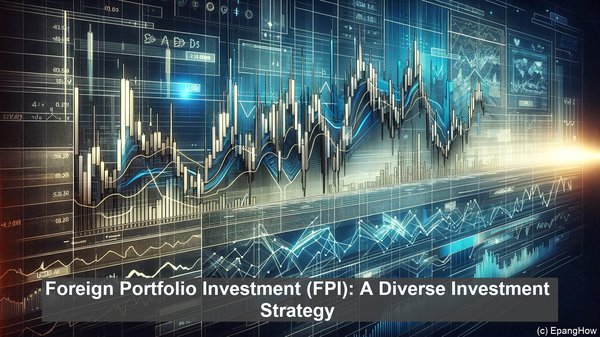Introduction: The Global Investment Landscape
Hello, everyone! Welcome to another insightful article on the world of finance. Today, we’ll be discussing the intriguing realm of international investments. As the global economy becomes increasingly interconnected, the flow of capital across borders has become a defining feature of our times. At the heart of this phenomenon lie two key concepts: foreign direct investment (FDI) and foreign portfolio investment (FPI). While they may sound similar, they represent distinct strategies and have different implications. So, let’s dive in and explore their nuances.
Foreign Direct Investment (FDI): A Strategic Approach
Foreign direct investment, as the name suggests, involves a direct and substantial investment in a foreign company or enterprise. In this case, an investor acquires a significant ownership stake, often with the intention of exerting influence over the company’s operations and management. FDI is typically a long-term commitment, with the investor actively participating in the company’s decision-making processes. This approach is often taken when the investor seeks to establish a lasting presence in the foreign market, tapping into its resources, labor, or technological capabilities. FDI is commonly seen in sectors such as manufacturing, infrastructure, and services, where a physical presence is crucial.
Foreign Portfolio Investment (FPI): A Diverse Investment Strategy
On the other hand, foreign portfolio investment is a more diversified approach. Here, the investor purchases securities, such as stocks, bonds, or mutual funds, issued by a foreign entity. Unlike FDI, FPI does not involve direct ownership or control over the company. Instead, the investor becomes a passive shareholder, seeking returns primarily through capital appreciation or dividends. FPI is often driven by short to medium-term goals, with the investor having the flexibility to buy or sell securities based on market conditions. This strategy allows for greater liquidity and ease of entry or exit, making it attractive for those looking for a more dynamic investment approach.

Benefits of Foreign Direct Investment
Foreign direct investment offers several advantages, both for the investor and the host country. For the investor, FDI provides an opportunity to diversify their portfolio, reduce risk, and potentially access new markets or resources. It also allows for a higher degree of control and influence over the invested company’s operations. On the other hand, the host country benefits from FDI through job creation, technology transfer, and overall economic growth. FDI often brings in expertise, managerial skills, and best practices, which can have a positive spillover effect on the local industry. Additionally, FDI can contribute to infrastructure development and enhance the country’s export capabilities.
Advantages of Foreign Portfolio Investment
While FPI may not involve the same level of direct engagement as FDI, it has its own set of advantages. One key benefit is the ease of entry and exit. Since FPI primarily deals with securities, investors can adjust their positions based on market conditions, making it a more flexible strategy. FPI also allows for greater diversification, as investors can spread their funds across different countries, industries, or asset classes. This diversification helps in reducing risk and potentially enhancing returns. Moreover, FPI provides an avenue for small investors to participate in the global market, as the initial investment requirement is often lower compared to FDI.

Potential Risks and Considerations
As with any investment strategy, both FDI and FPI come with their share of risks. In the case of FDI, the long-term commitment and substantial investment can expose the investor to various economic, political, and regulatory uncertainties. Changes in government policies, currency fluctuations, or market downturns can impact the viability of the investment. FPI, while offering greater liquidity, is also subject to market volatility. Sudden shifts in investor sentiment, global economic events, or geopolitical factors can lead to significant price fluctuations. Therefore, it’s crucial for investors to conduct thorough research, stay updated on market trends, and diversify their holdings to mitigate these risks.
